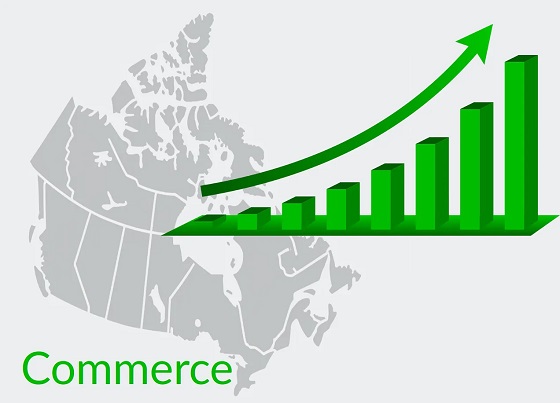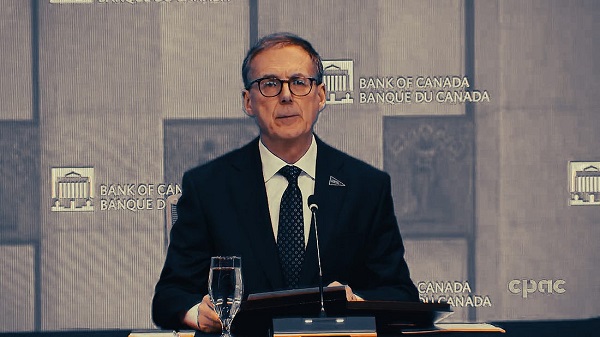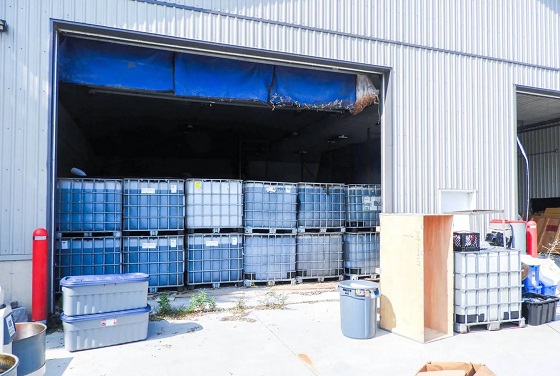Business
The Problem of Corporate Tax Rate Hikes

Why it’s nearly impossible to avoid causing more harm than good
Are Canadian corporations paying their share? Well, what is their share? And before we go there, just how much are Canadian corporations paying?
According to Statistics Canada, in the second quarter of 2024 the federal government received $221 billion from all income tax revenues (excluding CPP and QPP). Provincial governments took in another $104 billion, and local (municipal) governments got $21 billion. Using those numbers, we can (loosely) estimate that all levels of government raise somewhere around $1.38 trillion annually.
The Audit is a reader-supported publication. To receive new posts and support my work, consider becoming a free or paid subscriber.
If you’re curious (and I know you are), that means taxes cost each man, woman, and child in Canada $33,782 each year. Trust me: I feel your pain.
Based on Statistics Canada data from 2022 (the latest comparable data available), we can also say that roughly ten percent of those total revenues come from corporate taxes at both the federal and provincial levels.
Keep that 10:90 corporate-to-personal tax revenue ratio in mind. Because what if raising the corporate tax rate by, say, five percent ends up driving businesses to lay off even one percent of workers? Sure, you’ll take in an extra $7 billion in corporate taxes, but you might well lose the $12 billion in personal income taxes those laid-off workers would have paid.
How Much Should Corporations Pay?
Ok. So how should we calculate a business’s fair share? Arguably, a single dollar’s worth of business activity is actually taxed over and over again:
- When a corporation earns revenue, it’s taxed on its profits.
- Any remaining profit may be distributed to shareholders in the form of dividends. Shareholders, of course, will pay income tax on those dividends.
- Corporations pass on part of the tax burden to consumers through higher prices. When consumers pay those higher prices, a part of every dollar they spend is indirectly taxed through the corporation’s price adjustments.
- Employee wages paid from after-tax corporate profits are taxed yet again.
- Shareholders may eventually realize capital gains when they sell their shares. These gains are, naturally, also taxed.
I guess the ideal system would identify a corporate tax rate that takes all those layers into account to ensure that no single individual’s labor and contribution should carry an unreasonable burden. I’ll leave figuring out how to build such a system to smart people.
Does “Soaking Rich Corporations” Actually Work?
Do higher corporate taxes actually improve the lives of Canadians? Spoiler alert: it’s complicated.
Government policy choices generally come with consequences. From time to time, those will include actual solutions for serious problems. But they usually leave their mark in places of which lawmakers were initially barely aware existed.
Here’s where we get to explore some of those unintended consequences by comparing economic performance between provinces with varying corporate tax rates. Do higher rates discourage business investment leading to lower employment, economic activity, and incoming tax revenues? In other words, do tax rate increases always make financial sense?
To answer those questions, I compared each province’s large business tax rate with four economic measures:
- Gross domestic product per capita
- Business gross fixed capital formation (GFCF – the money businesses invest in capital improvements: the higher the GFCF, the more confidence businesses have in their long-term success)
- Private sector employment rate
- My own composite economic index (see this post)
Using four measures rather than just one or two gives us many more data points which reduces the likelihood that we’re looking at random statistical relationships. Here are the current provincial corporate tax rates for large businesses:
If we find a significant negative correlation between, say, higher tax rates and outcomes for all four of those measures, then we’d have evidence that higher rates are likely to have a negative impact on the economy (and on the human beings who live within that economy). If, on the other hand, there’s a positive correlation, then it’s possible higher taxes are not harmful.
When I ran the numbers, I found that the GDP per capita has a strong negative correlation with higher tax rates (meaning, the higher the tax rate, the lower the GDP). GFCF per capita and the private sector employment rate both had moderately negative correlations with higher taxes, and my own composite economic index had a weak negative correlation. Those results, taken together, strongly suggest that higher corporate tax rates are indeed harmful for a province’s overall economic health.
Here’s a scatter plot that illustrates the relationship between tax rates and the combined outcome scores:
Alberta, with the lowest tax rate also has the best outcomes. PEI, along with New Brunswick and Nova Scotia, share the high-tax-poor-outcome corner.
I guess the bottom line coming out of all this is that the “rich corporations aren’t paying their share” claim isn’t at all simple. To be taken seriously, you’d need to account for:
- The true second-order costs that higher corporate taxes can impose on consumers, investors, and workers.
- The strong possibility that higher corporate taxes might cause more harm to economies than they’re worth.
- The strong possibility that extra revenues might just end up being dumped into the general pool of toxic government waste.
Or, in other words, smart policy choices require good data.
The Audit is a reader-supported publication. To receive new posts and support my work, consider becoming a free or paid subscriber.
Business
“We have a deal”: Trump, Xi strike breakthrough on trade and fentanyl

President Trump declared “we have a deal” Thursday after meeting with Chinese President Xi Jinping in South Korea, describing their nearly two-hour summit as “a 12 out of 10.” Speaking aboard Air Force One, Trump told reporters the two leaders reached a sweeping agreement to stabilize trade relations and address the deadly fentanyl crisis. “We have a deal. Now, every year we will renegotiate the deal,” Trump said. “But I think the deal will go on for a long time.”
According to Trump, Xi agreed to suspend for one year China’s export restrictions on products made with rare-earth and critical minerals — materials essential to the production of semiconductors, batteries, and high-tech magnets. “There’s no roadblock at all on rare earth,” he said. “It’s a one-year deal that I think will be very routinely extended.” In exchange, Trump said the U.S. would lower the average tariff rate on Chinese imports from 57.6% to 47.6%. Trump emphasized that Xi also committed to intensifying China’s crackdown on fentanyl exports, which have been a major driver of overdose deaths in the United States. “We agreed he’s going to work very hard to stop the flow,” Trump said. “I think you’re going to see a big difference.”
Beijing also pledged to resume “tremendous” purchases of American soybeans, reversing its earlier retaliatory halt. In a Truth Social post later Thursday, Trump said China had additionally agreed to begin purchasing U.S. oil and gas, noting that “a very large-scale transaction may take place concerning the purchase of oil and gas from the Great State of Alaska.” The president confirmed that Taiwan was not discussed during the meeting but said both sides talked about working together to bring an end to the war in Ukraine. “We didn’t really discuss the Russian oil,” he added. “We discussed working together to see if we can get that war finished.”
The meeting, held at a South Korean air base, marked the first in-person exchange between Trump and Xi since his return to the White House. The two leaders greeted each other warmly, with Xi telling Trump, “Great pleasure to see you again.” Xi praised Trump’s leadership, saying, “China’s development goes hand in hand with your vision to make America great again,” and added that the two nations “are fully able to help each other succeed and prosper together.” Much of Thursday’s agreement builds upon a framework negotiated earlier this month in Kuala Lumpur between U.S. and Chinese trade teams.
Trump said he plans to visit China in April, calling the meeting “amazing” and “an outstanding group of decisions.” He did not say whether the pending TikTok deal was discussed. The renewed cooperation on fentanyl follows years of tension over China’s role in the U.S. opioid crisis. The CDC reports the drug has killed nearly 330,000 Americans in the past five years — roughly one in every 1,000 people. Trump has long pressed Beijing to stop the export of precursor chemicals used to make fentanyl, arguing the problem is both moral and economic. “They make $100 million selling fentanyl into our country,” Trump said last week. “They lose $100 billion with the 20% tariff. It’s not a good business proposition.”
Trump left Thursday’s summit expressing confidence that the new arrangement marked a major step forward. “On the scale of 0 to 10, with 10 being the best, I would say the meeting was a 12,” he said. “It was an amazing meeting — and I think this deal will go on for a long time.”
Business
Canada’s attack on religious charities makes no fiscal sense

This article supplied by Troy Media.
 By Lee Harding
By Lee Harding
Ottawa is targeting the charitable tax status of faith-based groups. The fallout could hit every Canadian community
The possibility that Canadian religious organizations will lose their charitable status has never been more real.
On Jan. 6, Parliament’s Standing Committee on Finance recommended numerous changes, including Recommendation 430: “Amend the Income Tax Act to define a charity, which would remove the privileged status of ‘advancement of religion’ as a
charitable purpose, meaning faith-based organizations could lose access to tax benefits.”
The B.C. Humanist Association, a secular advocacy group, has long advocated for removing religion as a stand-alone charitable purpose. That idea is reflected in Recommendation 430. Before adopting such a proposal, the finance committee should have reviewed a study published last November by Cardus, a Canadian think tank focused on faith, civil society and public policy.
The Cardus study examined 64 Christian congregations in various provinces to assess the socio-economic value of their impact. It suggested that congregations make an $18.2-billion socioeconomic contribution to Canadian society, well in excess of tax exemptions and rebates equal to $1.7 billion. The net positive result of $16.5 billion—a “halo effect”—is more than 10
times the value of the tax exemptions.
The implications are clear: society will be worse off if the loss of religious charitable status leads to a drop of more than 10 per cent in donations to affected charities. Why risk it?
When congregations unravel, society follows in ways that go beyond mere economics. As Cardus explains, churches often provide space, often at no cost or below-market rates, for cultural and artistic events, recreation and sports, education, social services and other community activities. They also deliver addiction recovery, counselling and mental-health support, child care, refugee sponsorship and settlement services for newcomers, education and food banks.
Whether institutionally or personally, helping people is often an integral extension of religious belief. A 2012 Statistics Canada study found that the 14 per cent of Canadians who attend church weekly offer 29 per cent of the nation’s volunteer hours and provide 45 per cent of all charitable donations.
No party has explicitly endorsed removing charitable status for religion. But the Bloc Québécois, NDP and Liberals dominated the committee recommendation to remove religion as a charitable purpose. The Conservative Party, which held a minority on the committee, was alone in opposing it outright.
Randy Crosson, executive director of Freedoms Advocate, is organizing a national pushback. In a speech given Oct. 1 to the Regina Civic Awareness and Action Network, he said the recommendation was a “shot across the bow” to gauge public reaction.
“This isn’t just about donors losing tax receipts. It’s about churches losing buildings, staff losing jobs, and ministries being forced to shut down due to reduced donations. This is a direct threat to the future of faith in Canada, and it’s happening fast,” Crosson explained in an online video.
Crosson said religion enjoys less participation and more opposition than in previous decades. Church attendance has slumped since the pandemic, and some Canadians continue to criticize churches for their historical involvement in residential schools.
The Quebec government has also pursued a strongly secular approach to public policy. In 2019, Quebec’s Bill 21 used the notwithstanding clause of the Constitution to ban public servants from wearing religious symbols, such as hijabs, turbans or crucifixes. In August, Quebec’s secularism minister, Jean François Roberge, said that the “proliferation of street prayer is a serious and sensitive issue” and promised to bring legislation to ban it.
That’s why Crosson is urging religious leaders to launch a three-part campaign.
“First, an open letter drafted with legal and faith leaders to show government and the media the real value of the church in Canadian society. Second, mass signatures. We need churches, leaders and individuals to sign the letter,” Crosson says in a video appeal. “And third, a national documentary based on the open letter. This will be released publicly and spread through churches, media and social platforms.”
The Frontier Centre for Public Policy has also come out publicly against the proposed change. A report by Senior Fellow Pierre Gilbert entitled Revoking the Charitable Status for the Advancement of Religion: A Critical Assessment makes a case for the status quo, pointing to benefits such as those mentioned above.
For now, at least, the idea is on hold. A published email response by Liberal MP Karina Gould, the chair of the House of Commons’ Standing Committee on Finance, said the charitable status of faith-driven non-profits will not be revoked in the Nov. 4 budget.
That’s good news. Faith is a big motivator of charity, and it’s hard to see how a less charitable society is a better one. If governments want to balance the books, they should rein in spending, not put faith-based charities at risk.
Lee Harding is a research fellow for the Frontier Centre for Public Policy.
Troy Media empowers Canadian community news outlets by providing independent, insightful analysis and commentary. Our mission is to support local media in helping Canadians stay informed and engaged by delivering reliable content that strengthens community connections and deepens understanding across the country
-

 National1 day ago
National1 day agoCanadian MPs order ethics investigation into Mark Carney’s corporate interests
-

 Business1 day ago
Business1 day agoFord’s Liquor War Trades Economic Freedom For Political Theatre
-

 Banks1 day ago
Banks1 day agoBank of Canada Cuts Rates to 2.25%, Warns of Structural Economic Damage
-

 Bruce Dowbiggin17 hours ago
Bruce Dowbiggin17 hours agoGet Ready: Your House May Not Be Yours Much Longer
-

 Alberta1 day ago
Alberta1 day agoNobel Prize nods to Alberta innovation in carbon capture
-

 Business2 days ago
Business2 days agoBill Gates walks away from the climate cult
-

 MxM News1 day ago
MxM News1 day agoTrump ‘Grateful’ For Bill Gates Pivot, Declares Victory Over ‘Climate Change Hoax’
-

 Internet2 days ago
Internet2 days agoMusk launches Grokipedia to break Wikipedia’s information monopoly







